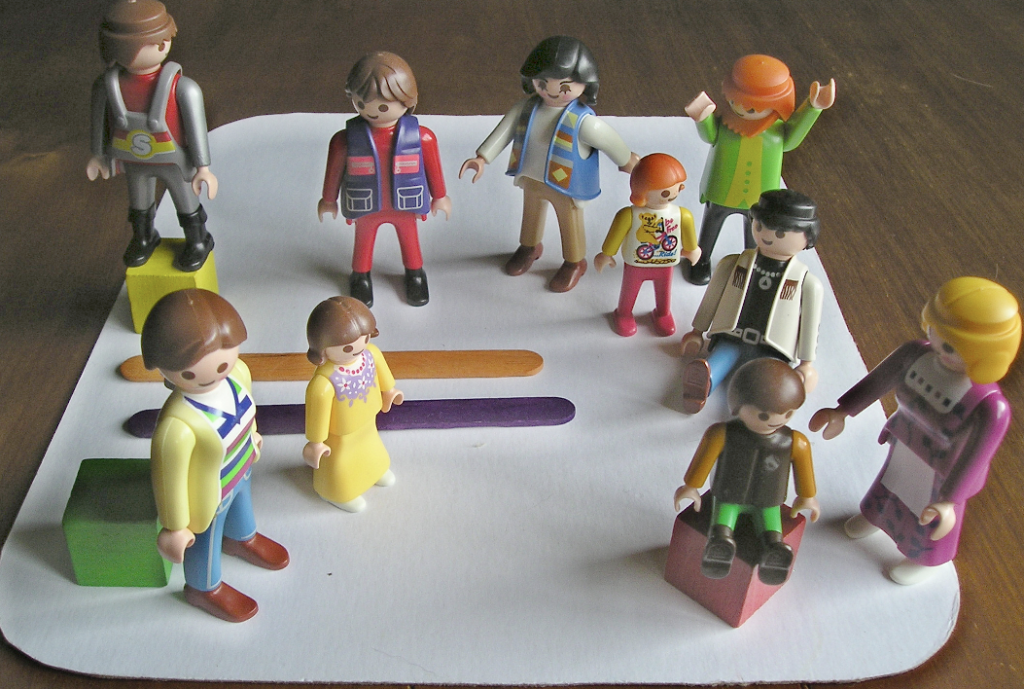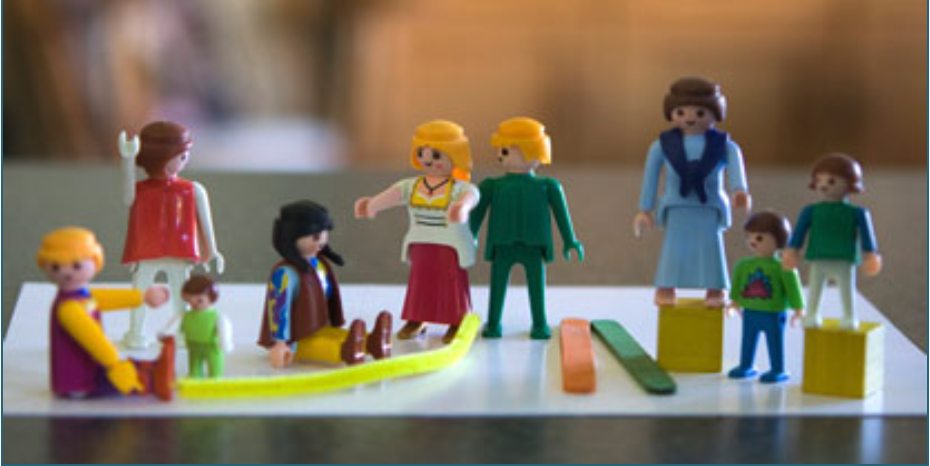Small Figures Workshop

with John Barton
Christchurch
30th and 31st May, 2024
Small figure work is a powerful and effective method of working with adults, adolescents and children. Clients quickly understand themselves from new
perspectives and find themselves thinking in new and creative ways. This workshop will focus on working with adults in the one-to-one setting. The work can be directly applied with couples and families, in supervision and in workplace/management settings. Participants who work with children will need to modify the work to suit their clients.
Using small figures enables clients to:
Express and understand their knowledge of the family and social systems they inhabit.
Experience themselves and their stories from both internal and external perspectives.
Connect with feelings and understandingthat are held in nonverbal memory.
Concretise and thus more fully experience their hopes and wishes for the future.
Day One will cover:
• General principles of small figure work and of combining this work with talk-based methods.
• A specific way of using small figures to work with a client who has a difficult relationship.
• A specific method for bringing to life the memories, feelings and actions of functional roles. This is particularly useful with depressed clients.
Day Two will cover:
A way of exploring the history of a relationship. This is useful in grief work. It can also be used to celebrate a relationship and to allow expression of things previously unsaid. The teaching will include the use of simple psychodrama techniques.
Plus: Several items selected from the following
A way of looking at the client’s social system and the nature of their relationships at earlier times in their life.
• A way of looking at the client’s current social system and their relationships.
• Action Genogram. Making a genogram with the figures and then using them to find further meaning.
• Working with unwanted repeated behaviour. This has some relevance to addictions.
• The Diamond of Opposites: A way of using the figures to assist in making a decision.
• The Four Heroes: A way of assisting a client to develop more effective roles in a situation they find difficult.
• How to obtain small figures.
The workshop will be experiential and limited to ten participants.
Participants will have the opportunity to be both the client and the therapist. There will also be demonstration and discussion of practical and theoretical aspects of this work. The workshop is likely to be enjoyable and to heighten participants’ appreciation of themselves.
To register, contact John Barton:
Email jbarton672@gmail.com or Phone 027 566 6016

John Barton
is a psychotherapist, psychodramatist and Balint group leader now living in Christchurch. He was a GP for over thirty years, in Taihape, Huntly and inner city Melbourne. He uses small figures in his own practice and has run this workshop in New Zealand, Australia, USA, Europe and Asia.
He has a warmhearted teaching style which shows his enthusiasm for small figure work and his joy in the practice of psychotherapy.
The workshop is designed so that practitioners from different backgrounds can make sense of using small figures in terms of their own training and thinking.
More information
Cost
$180 (Concession for students and unwaged: $90.00).
Note: The fee is half the usual price of this workshop in acknowledgement of the work done by counsellors in Christchurch following the earthquakes and mosque shootings.
Place and Time
To be notified, Casebrook, Christchurch.
9:00 am to 5:00 pm, on both Thursday 30th and Friday 31st May.
Morning and afternoon tea will be supplied, there will be a one hour lunch break each day.
Further information on this work contact John Barton by email or visit his website: www.smallfigures.net
Much of this work was developed by Dr Carlos Raimundo and is called Play of Life.
At the end of the workshop the figures used in the workshop (Playmobil toy figures) will be for sale to the participants.
It is expected that all participants will take responsibility for self care if they uncover personal material that is difficult, for instance through access to their own therapist or supervisor.


